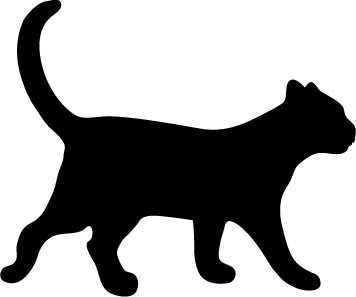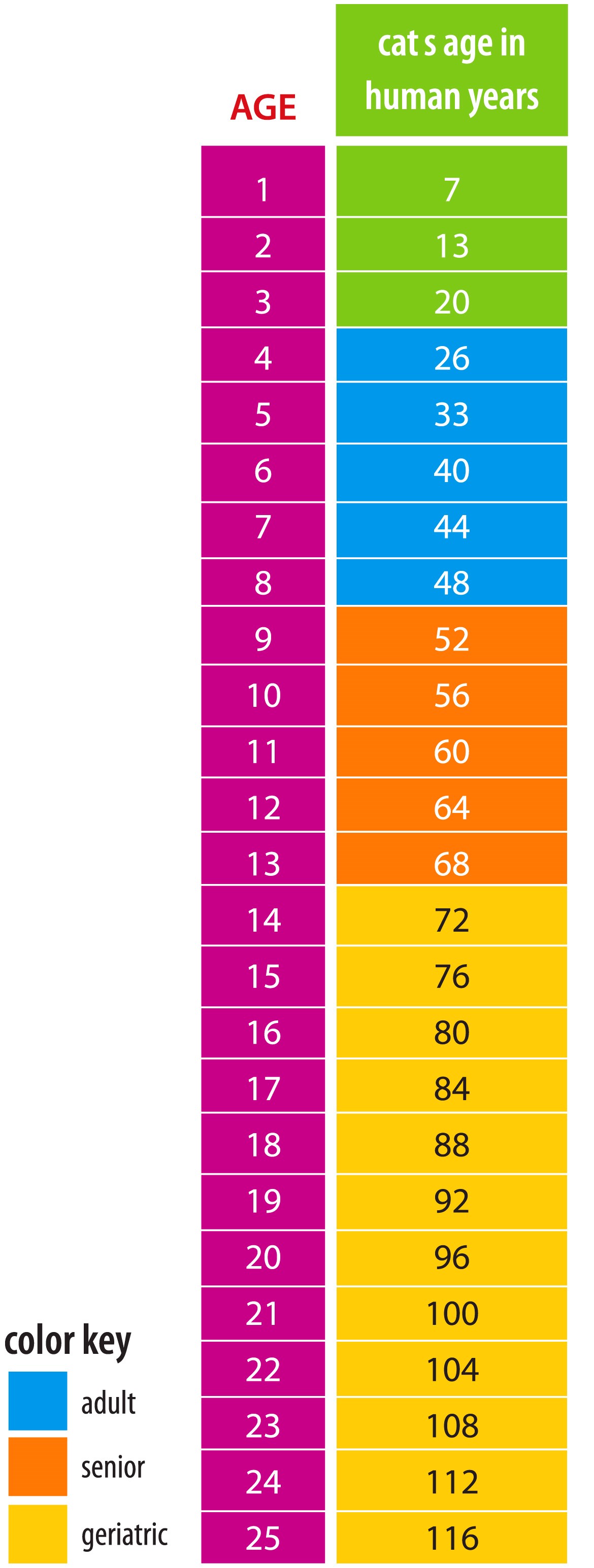A touch of gray on the chin; once-clear eyes becoming a little cloudy. A slight stiffness in what used to be a frisky gait. Any of these can be telltale signs that your furry friend is entering the “golden” years.
Generally speaking, a cat 7 years of age or older qualifies as a senior. Factors affecting how individual cats age include body weight, nutrition, environment, and overall health.
The old adage that every year in a cat’s life is equivalent to seven “human” years isn’t quite accurate. Pets mature more rapidly during the first two years of life, and then again during the final third of their life span. Use the chart at right to determine your cat’s age in human years.
Why is important to know your cat’s true age? Pets are living longer than ever, thanks to advances in veterinary care and improved nutrition, providing their owners with many more years of love and faithful companionship. The trade-off, however, is that senior pets, just like their aging human companions, become more vulnerable to multiple health problems and diseases such as weight gain and decreased mobility; heart, kidney, and liver diseases; diabetes; dental problems and periodontal disease; behavioral problems and cancer. The good news is that many of these health problems can be prevented, controlled, or treated if detected in the early stages.
Once your cat has reached senior status, twice-a-year senior wellness exams are recommended as the standard of care by the American Animal Hospital Association. Ask us how our Senior Care program can make your cat’s golden years happy and healthy!










